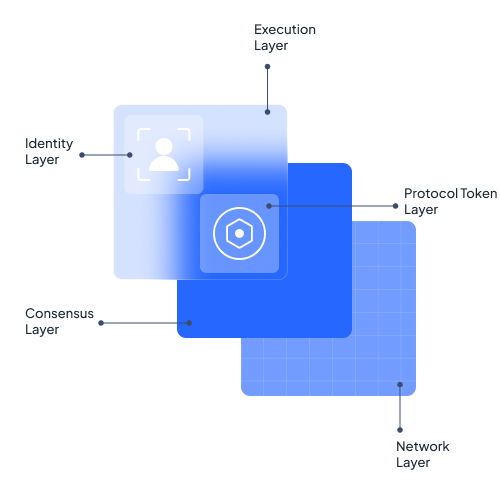Stablecoins & TMMFs
PLTs are a compelling foundation for regulated stablecoins and tokenized assets, including money market funds, with built-in auditability and compliance-readiness.
Programmable, secure and chain-native: redefine how finance and blockchain intersect.

The promise of seamless, automated finance has been undermined by the systemic flaws of smart contracts: security holes, costly exploits, skyrocketing gas fees, and zero compliance safeguards. For finance to scale on-chain, programmable money must be trustworthy, secure, cost-efficient, and ready for demands of the real-world economy.

While smart contract-based tokens such as ERC-20 and SPL are flexible and customizable, they are also costly, prone to hacks and inconsistent across projects. Protocol Level-Tokens are built directly into the Concordium protocol, eliminating the risks and inefficiencies of tokens held in a vulnerable honey pot.

PLTs are a compelling foundation for regulated stablecoins and tokenized assets, including money market funds, with built-in auditability and compliance-readiness.
Concordium’s zero-knowledge identity capabilities enable seamless age or jurisdiction verification in payment flows with no extra UX complexity.
From programmable payment rails and mechanisms to control fund issuance and settlements, PLTs underpin a new breed of secure financial tools.
Concordium continues to expand PLT capabilities
with upcoming enhancements
Protocol-Level Tokens (PLTs) in a nutshell.

Unlike ERC-20 and similar standards that rely on smart contract logic, PLTs are embedded at the protocol layer. This reduces vulnerabilities, gas fees, and ensures standardized functionality across all tokens.

Token issuers send off-chain requests to the Concordium Foundation outlining the monetary script (i.e. allowlist/denylist parameters, mint and burn functionality). Upon approval a governance transaction is then submitted to the chain to initiate the new PLT with the parameters provided. See PLT documentation for further details.

To transact with PLTs, a Concordium wallet is necessary. To choose the right one for your needs, read the following guide: Concordium wallets.

Yes. As Concordium integrates ID verification into the protocol itself, every wallet holding PLTs is tied to an identity. However, no personal information is stored on-chain. And once verified, users can transact and interact with various applications anonymously. Zero-knowledge proof technology allows proof of identity without revealing personal information. Learn more.

PLTs support built-in compliance features such as allowlists, denylists, and identity verification through the Concordium identity layer. This makes them ideal for stablecoins, tokenized funds, and other financial products or payment platforms that need to meet regulatory requirements.

Issuers can mint new tokens, burn tokens and manage compliance lists as well as control supply directly at the protocol level.
The latest news, tech updates, and resources.